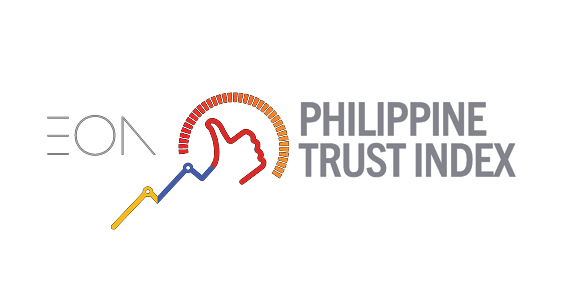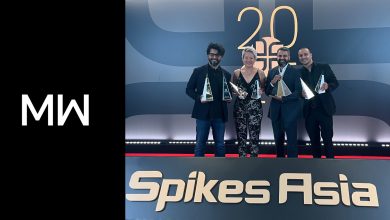MANILA – Amid the wave of societal and institutional distrust observed across the globe, Filipinos run against the tide as their trust and confidence in the country’s key institutions increased, particularly the government. This is according to the fifth Philippine Trust Index (PTI), a nationwide survey that looks into Filipinos’ levels and drivers of trust in six key Philippine institutions – government, academe, businesses, NGOs, church and media.
A multi-awarded proprietary research of the EON group, this year’s PTI also probed into Filipinos’ trust in social media compared to other institutions and tuned in to social media conversations to discover whether online discussions truly reflect on-the-ground realities.
Among the six key institutions, four institutions – government, academe, businesses, and NGOs gained increased trust ratings, while trust for the two remaining institutions – Media and the Church – stagnated.
A Leap in Government Trust
Filipinos’ expressed greatest belief in the government as extreme trust ratings almost tripled since 2015 and overall trust levels rose by 30 percentage points. The survey also revealed that among government sub-institutions, the Office of the President (82%) and Local Government Units (78%) are the most trusted. Collectively, the Executive Branch is the most trusted, while the Legislative branch is the least trusted in government.
Meanwhile, about 93% of the respondents considered government agencies providing social services such as PhilHealth, SSS and Department of Education to be trustworthy. Naturally, respondents were more sceptical about agencies that were least familiar to them such as the Dept. of Finance, National Economic and Development Authority, and the Department of Budget and Management.
Positive Sentiments for Business Industries
For business institutions, public sentiments point to the rise of extreme trust, compared to two years ago. This 2017, Healthcare, Food and Beverage (F&B), Pharmaceuticals, Energy, and Telecommunications industries are regarded as highly trustworthy by 40%, 36%, 35% and 32% of Filipinos, respectively. On the far end are the Mining, Alcohol and Tobacco, Advertising and PR, and Legal industries. These figures reaffirm that Filipinos respond favourably to brands that they have interacted with as employees or customers. This is why the most trusted brands are those that come from the manufacturing (36%), retail (33%), and restaurants and fast food chains (19%).
The push and pull of traditional and new media
Albeit the expansion of internet and social media use among Filipinos, the general public still trusts traditional media channels – television networks (89%), radio stations (85%) and newspapers (75%) – more than social media sites.
Of the 49% of Filipinos who have access to social media, 87% believes in the truthfulness of social media sites, while only 73% believes in traditional media. Those who trust social media sites tend to believe organic and personal posts by friends and family, and are more doubtful of posts from social media influencers and strangers.
Key Drivers of Trust
A salient finding in this research is that repeated interactions are critical in building and driving trust. Be it the government or the business sector, the most trusted institutions and sub-institutions are those that Filipinos come in contact with the most.
Specifically for the government, trust hinges on initiatives that impact Filipinos’ lives in tangible ways. Both the PTI results in 2015 and 2017 indicate that Filipinos value the government’s ability to ensure peace and security and help the poor as the foremost driver of trust, followed by the provision of better job opportunities and imprisoning corrupt politicians. This year, Filipinos are most satisfied with the institution’s efficacy in putting corrupt politicians in jail (47%), preparing communities for disasters and calamities (46%) and ensuring national security (43%). Also, confidence in its ability to improve the economy and support industry development rose by 18 and 17 percentage points, respectively.
For businesses, trust drivers pertain to aspects of employee and customer welfare. The general public are most satisfied with the business sector’s performance in the five most important indicators: provides good salaries and benefits (42%), improves the quality of their products and services (41%), treats customers well (39%), do their business well to increase profit (39%), and practice fair labor (38%).
When it comes to media, Filipinos place high value on integrity as professionals, competence and objectivity as reporters of facts. Evaluating media’s performance, they are most satisfied with the media’s competence and objectivity when reporting facts, and unanimously least satisfied with the media’s integrity.
Social Media Buzz vs. Offline Sentiment
Results from Groundswell™, EON’s proprietary and award-winning social media listening tool, confirm that issues trending on social media reflect on-the-ground realities about Filipino trust, even though only half of Filipinos are active online and active on social media. The PTI looked into social media posts that are relevant to the topic of institutional trust and found that the government (11,394 mentions), the media (3,298 mentions) and the church (2,006 mentions) were the most meaningfully discussed out of the six institutions.
According to Junie del Mundo, CEO and Chairman of EON The Stakeholder Relations Group, “The Philippine Trust Index shows us the promise and opportunities in Filipinos’ rising trust in our institutions today. This means that leaders in these key sectors have greater influence but should harness this to help positively improve the daily lives of people in concrete ways.” Given these realities, del Mundo said that it is imperative for organizations to communicate tangible, relatable truths to engage stakeholders and build trust-based relationships. It is also important to leverage social media in shaping and taking control of the conversations regarding their brands.
The 5th Philippine Trust Index were culled from the responses of 1,200 Filipinos aged 18 and above coming from urban and rural areas in NCR, North Luzon, South Luzon, Visayas, and Mindanao. The study was conducted from March to April 2017.
For more information, visit www.eon.com.ph.










